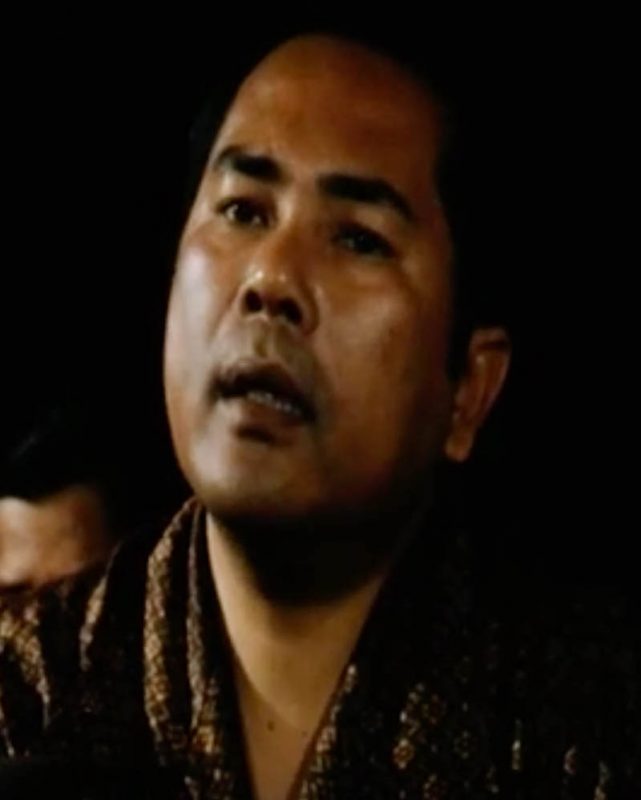CIA Paints Lon Nol’s Brother as Cambodia’s ‘Troublemaker’ – The Cambodia Daily
Lon Non, the younger brother of then-President Lon Nol, was a “devious” character who had no interest in harmony and was heavily responsible for the failures of his brother’s regime, according to a recently declassified U.S. intelligence document from 1973.
Among the more than 12 million pages of documents released online by the CIA last week, “Lon Non, Cambodia’s Prime Troublemaker” is a scathing assessment of the man who was handed high-ranking positions in the military and government by Lon Nol, who had ousted Prince Norodom Sihanouk three years earlier.

The document paints Lon Non as one of the main culprits responsible for the dysfunction and corruption that defined the Khmer Republic, which in March 1973 was increasingly under threat from a communist insurgency that would become the Khmer Rouge, despite the U.S. government’s backing.
“Unlike his introverted older brother, Lon Non is an activist, a swaggerer who relishes being the center of attention. He is tough and devious, with a strong streak of cunning and a reputation for impetuousness,” the document says, before making a derogatory generalization about Cambodians.
“For a Khmer, he displays uncommon energy and drive, which he uses to wear down his opponents and attain his objectives.”
Emerging from the shadows in 1971 after his brother suffered a stroke, Lon Non began to exert his influence over his partially incapacitated brother and sought to stoke conflict among his adversaries in government. One in particular, Sisowath Sirik Matak, was a member of the royal family who played a pivotal role in ousting Prince Sihanouk, his cousin, in 1970.
“Bad blood between Lon Non and Matak has figured predominantly in the past three years of political squabbling in Phnom Penh,” the assessment says.
“Matak’s departure from the government in March 1972 was engineered largely by Lon Non, who fanned student agitation by circulating rumors that Matak was plotting to restore the monarchy,” it continues.
“Lon Non periodically revives this bug bear, and he is using it again in his effort to forestall Matak’s accession to the vice presidency.”
Lon Non is also accused by the U.S. of stifling attempts by army chief Sosthene Fernandez to stamp out “phantom troops” whose pay was pocketed by “corrupt commanders,” and being reluctant to have his own units investigated.
Lon Non’s ineptitude as a politician is also raised in the report, including his failed attempts to try and curb the communist insurgency, which would eventually result in the Khmer Rouge overthrowing his brother’s government in 1975.
It highlights an “overblown and costly” scheme to attract defectors to the government. “Like Lon Nol, Lon Non views the insurgents as misguided Cambodians who will rally once they are no longer under North Vietnamese domination,” the document says.
“The insurgents are unlikely to enter into any serious negotiations in which Lon Non plays a role. They have long pointed to him as a symbol of government corruption,” it adds.
The document ends with the question, “Can He Be Curbed?”
“Internal stability comes hard in Cambodia even under the best of circumstances. As Sihanouk once aptly remarked, ‘It takes a strong leader to make a Cambodia orchestra play in harmony,’” the report says.
“Unfortunately, Lon Non is the most forceful personality in the present government, and he is little interested in harmony. If he continues his free-wheeling ways, the already slim prospects for greater political cohesion in Phnom Penh will disappear.”
The possibility of shipping him off to a “remote ambassadorial post” is floated, although doubt is raised over whether he would agree to being exiled.
“The removal of Lon Non would at least encourage many military and civilian leaders and hold out hope to the general public for some improvement in the government’s overall performance,” it predicts.
“The alternative is deepening drift and decay.”
Lon Non left Cambodia about a month after the CIA report was penned in 1973 due to U.S. frustrations over his behavior, but returned to Cambodia in September 1974.
A former classmate of Pol Pot, he refused to flee the country with his brother in April 1975, as the Khmer Rouge surrounded the capital.
When the communists finally stormed Phnom Penh on April 17, there was confusion in areas of the city as a division armed by Lon Non sought to capitalize on the government’s defeat and seize power.
He was unsuccessful and was among the first officials to be executed by the Khmer Rouge.
[email protected]
